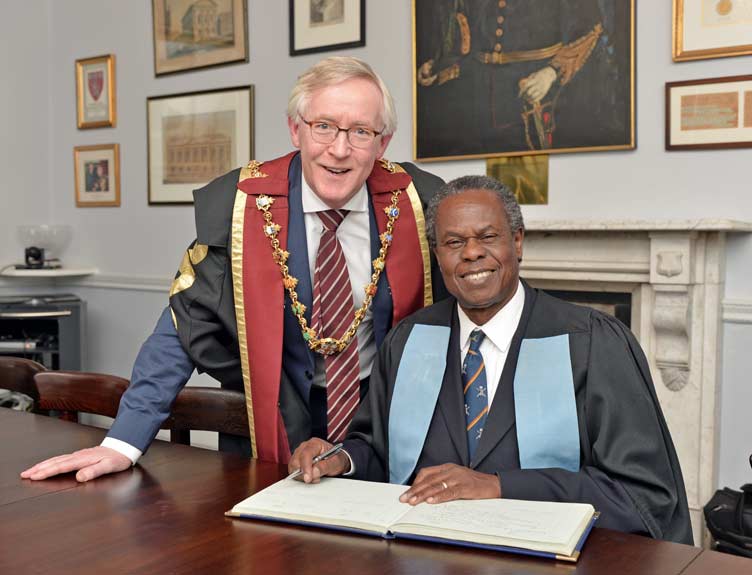RCSI hosts major global health conference

RCSI (Royal College of Surgeons in Ireland) is today and tomorrow hosting an international conference to address the urgent health needs of low and middle income countries.
Researchers, medical practitioners and others from north and south will discuss global health needs in light of the adoption of the UN Sustainable Development Goals in September 2015 and the world’s commitment “to ensure healthy lives and promote well-being for all at all ages”.
Mr Declan J. Magee, RCSI President said: “While a wide range of urgent issues will be addressed at the conference over the next two days, the issue of particular interest to us at RCSI is the lack of access in the developing world to basic surgery. Worldwide, five billion people lack access to safe, affordable surgical and anaesthesia care when needed. Communicable diseases have long been the focus of attention, but now injury, rather than such diseases, is the main cause of death for children under five in sub-Saharan Africa. The work of the Lancet Commission and the World Health Assembly resolution on surgery has drawn much needed attention to the unmet surgical need.”
Delegates from a range of northern and southern educational, training and research partnerships will share experiences on key issues for improving global health at the conference.
Professor Francis Omaswa from Uganda will highlight the importance of ownership and leadership in Africa. Lord Nigel Crisp will call for a new approach to global health – ‘turning the world upside down’ through partnerships for mutual learning and co-development. Dr James Campbell from the World Health Organization will speak on addressing the global shortage of health workers – ‘Workforce 2030: The WHO Global Strategy and the High-Level Commission on Health Employment & Economic Growth’.
“The sessions on surgical training, particularly in sub-Saharan Africa, are of critical importance,” according to Mr Magee. “The principal barrier to providing surgical care to the five billion who cannot currently access it is the lack of trained surgical providers.”
RCSI collaborates with the College of Surgeons of East, Central and Southern Africa (COSECSA), the surgical training college for ten countries in a region with many of the lowest income countries in the world: Burundi, Ethiopia, Kenya, Malawi, Mozambique, Rwanda, Tanzania, Uganda, Zambia and Zimbabwe. Currently there are only 1,690 qualified surgeons in this region for 320 million people. This ratio of (0.53 surgeons per 100,000 population is almost twenty times lower than the figure for Ireland.
Irish Aid has supported the collaboration to support surgical training programmes in cash terms with over €3 million in total up to 2017. RCSI’s contribution has been an estimated €3m in intellectual property, travel costs and staff time.
Work is now underway on assessing the feasibility, impact and cost-effectiveness of providing surgical training to clinicians without full medical training based at district hospitals in Malawi and Zambia. People thus trained would then be able to make critical life-saving interventions for people in rural and remote areas.
The conference includes presentations and discussions on a range of innovative partnerships and training initiatives to bring surgery and other essential global health interventions to communities in some of the poorest countries in the world.
The purpose of RCSI is ‘developing healthcare leaders who make a difference worldwide’. In low and middle income countries, the College has sought to achieve this by leveraging its expertise in education, assessment and research through partnering with local educational institutions and developing and supporting their capacity to provide education and examinations.



